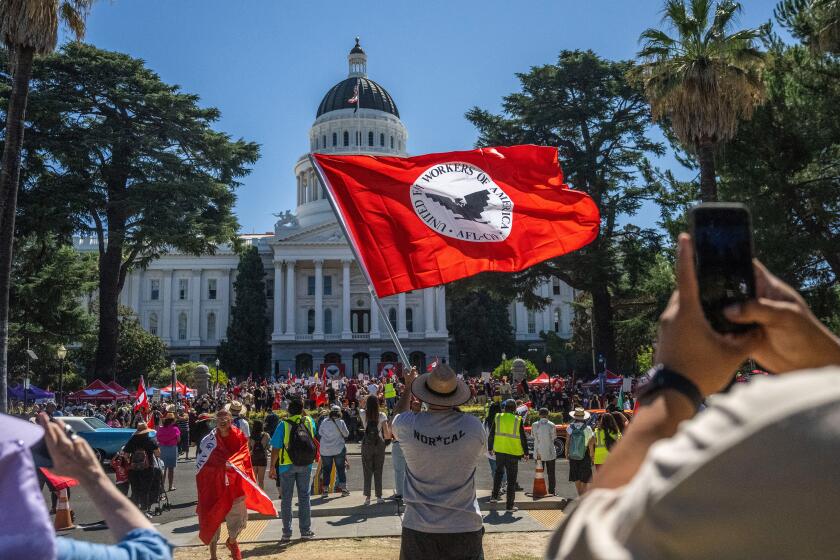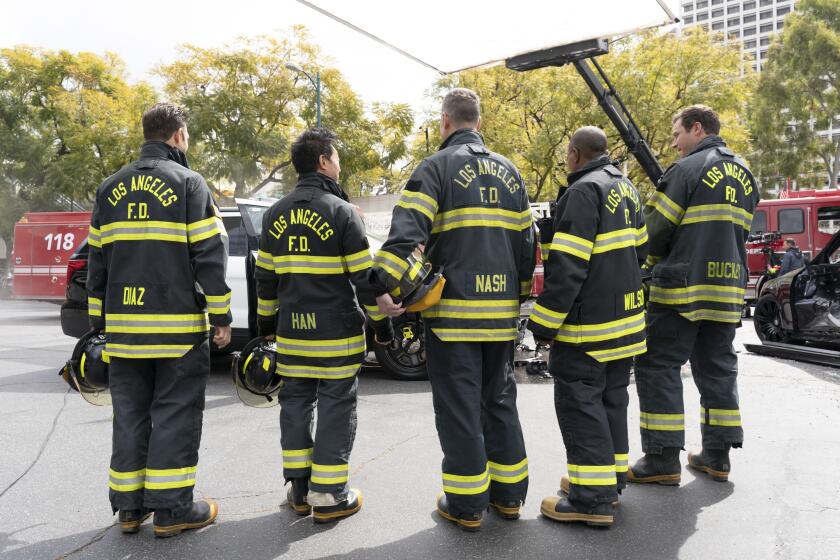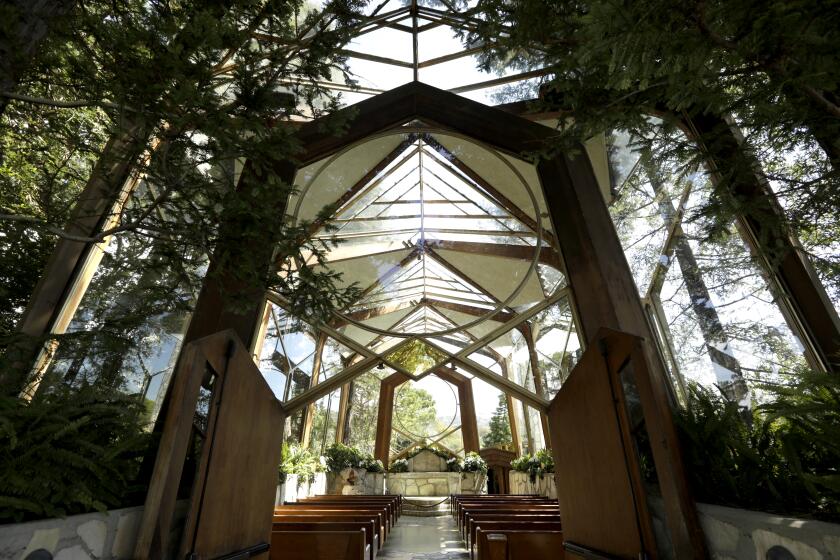The Nerd Factor : Nightclubs’ Unwritten Dress Codes Under Attack
Comes now Kenneth M. Lipton wearing Exhibit A: The rumpled, short-sleeved turquoise shirt and baggy olive pants that he sported the spring Saturday night he was denied entrance to Mayan, a fashionable downtown nightclub.
Lipton, a San Fernando Valley attorney, took time Tuesday from his specialty--dog-bite cases--to bring the club’s owner to the distinctly unglamorous setting of Los Angeles Small Claims Court, alleging that the Mayan violates state law by discriminating on the basis of appearance.
His lawsuit, seeking $1,000 in damages for himself and three friends, is just one assault on Los Angeles clubs that follow the tradition of Manhattan’s now-defunct Studio 54 by selectively admitting patrons from a crowd milling in the street.
Vertigo, the first such club in this city, is also under fire. The state Alcoholic Beverage Control Department wants to suspend Vertigo’s license because “it’s unfair to the general public when they have no idea what the criteria are for getting in and not getting in,” said Carl Falletta, the agency’s deputy division chief.
Both cases invoke the state’s Unruh Civil Rights Act, passed in 1959 to battle discrimination in business establishments. Carol Sobel, senior staff counsel for the American Civil Liberties Union of Southern California, believes the plaintiffs are on solid ground contending that what she calls “the nerd factor” should not decide who gets in and who stays out. “It’s totally arbitrary and that is exactly what Unruh is supposed to prevent,” she said.
The attorney for Mayan, Larry Nagler, disagrees. “The act simply was not designed to prevent the . . . exclusion of a single patron based not on any class generalization . . . but instead on his or her own personality or individual conduct,” he wrote to the court.
The two sides in the Mayan case faced off in court Tuesday. After the testimony, Commissioner Diana M. Wheatley said she will take some time to think about the matter before rendering a verdict.
Meanwhile, Lipton continues to fume about the power of the doorman. “He was wearing a monk’s habit and a four-foot-long cross,” he said in an interview. “And he thought I was a nerd!”
On May 19, the night in question, Lipton said he waited outside the club for 1 1/2 hours with two friends, the owner of a termite control company and a school accounts manager. The doorman would not beckon the three past his velvet rope to pay $15 and gain admission to Mayan’s mysteries.
“Another guy had driven in from Oceanside with five friends,” Lipton said. “They let in the five friends but not him.”
Watching later arrivals sweep immediately in, Lipton confronted the doorman. He said the doorman told him, “You’re not appropriately dressed,” and when Lipton protested that the club had no posted dress code, added, “You’re never getting in.”
His companions said they did not participate in the exchange, but they too were angered by their apparent inability to meet the unwritten standards to join the stylish crowd inside.
Teresita Dubrall wore a black cotton dress. Jeff Stolzer wore gray cotton-and-polyester pants, dark wool blazer, brown shirt, tiny hoop earring in his left ear and a graying ponytail. “I brushed my teeth earlier that evening,” he said.
Accountant Stephen Ambrosini said he was supposed to meet Lipton’s party, but had already left after trying unsuccessfully for 45 minutes to get into the club.
“We drove all the way down there and paid for parking. It was a waste of my time,” Ambrosini said.
Club owner Sammy Chao testified that a doorman thought he recognized Lipton from a photo as someone who had been “mouthing off” outside. If so, Chao said, that is the reason the lawyer could not get in. “Chances are if you are abusive in the front, you will be abusive inside after you drink,” Chao said.
Customers cannot simply line up for admission on a first-come, first-served basis, he said, because such an arrangement does not give the doormen enough time to observe their behavior.
The Mayan has no written dress code, said Chao, who wore an oversize black suit, white shirt and color-splashed tie. But the club does have “an interest in the safety and also the enjoyment of our patrons,” he said.
An owner of Vertigo, which is located a few blocks from Mayan, watched the court proceedings with interest. Jim Colachis, stubble-faced and wearing a brocade blazer, was preparing for his own dispute with the alcoholic beverage control agency. No hearing date has yet been set.
Undercover police and ABC agents were turned away from Vertigo in May and June of 1989. “One was dressed like a . . . well, I won’t say it,” Colachis said. “Another one was in sportswear, running clothes.”
He said he would have rejected Lipton’s ensemble too. “Dressed like he is and not a regular customer, I would have to say no,” Colachis said. “First-timers generally need a jacket.”
More to Read
Start your day right
Sign up for Essential California for news, features and recommendations from the L.A. Times and beyond in your inbox six days a week.
You may occasionally receive promotional content from the Los Angeles Times.






